We occasionally link to goods offered by vendors to help the reader find relevant products. Some of these may be affiliate based, meaning we earn small commissions (at no additional cost to you) if items are purchased. Here is more about what we do.
Have you noticed all the buzz about turmeric on your cuisine radar lately?
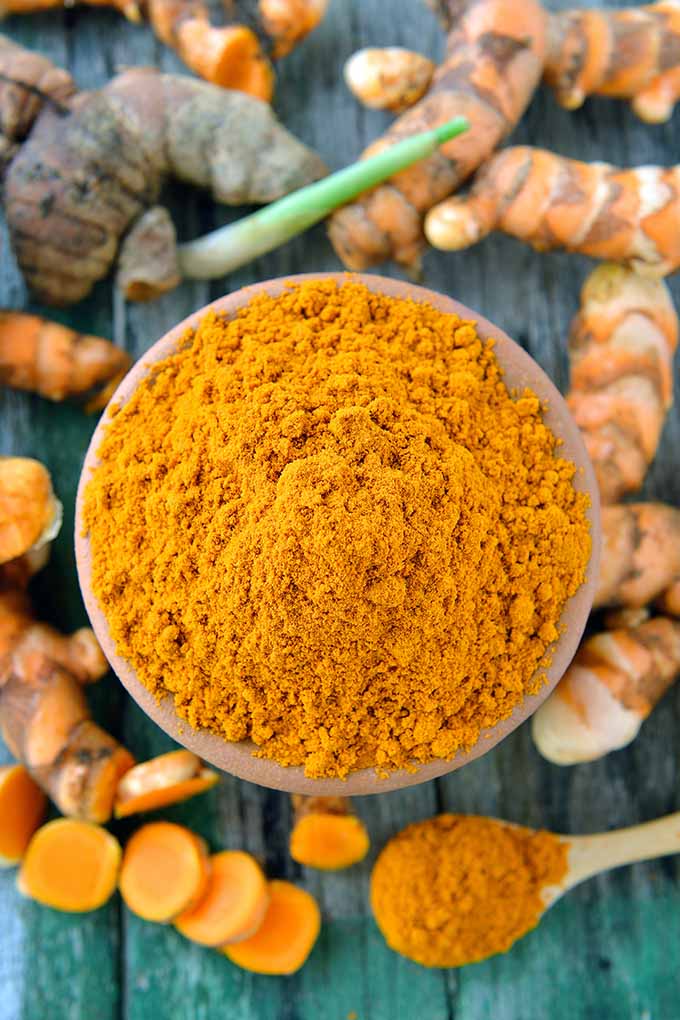
Actually, the interest is in its active ingredient, curcumin, and the promise it holds for health benefits.
This earthy spice has long been used as a cooking staple in regions of the Indian subcontinent, and there has been continual medical research since the 1990s studying its healing properties.
So let’s have a quick look at why we want to increase our consumption, and then how we can add more to our daily diets.
What’s the Buzz?
The edible part of turmeric is the fleshy rhizome, or root. Similar in appearance to ginger, it belongs to the same family, but is considerably smaller than ginger root.
Native to southern Asia, its growth requires warm, tropical temperatures and plenty of water.
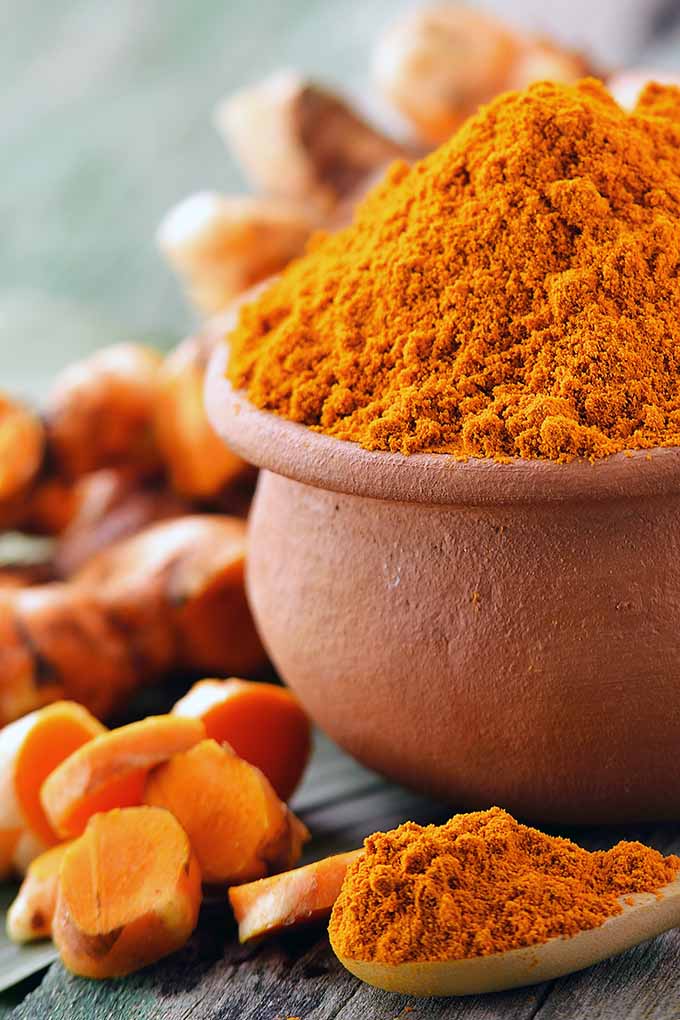
Curcumin is the chemical compound that is piquing scientific curiosity, and it’s what gives this distinctive spice its unique, bright saffron color.
First used as a textile dye, it soon transitioned to healing purposes in traditional Indian medicine.
Residue from pots unearthed near New Delhi have been dated to 2500 BC. And the first written reference to turmeric is found in the Susruta Ayurvedic Compendium (an ancient medical text) from 250 BC.
Marco Polo wrote about it during his travels, and today, scientists worldwide are writing about it in medical research.
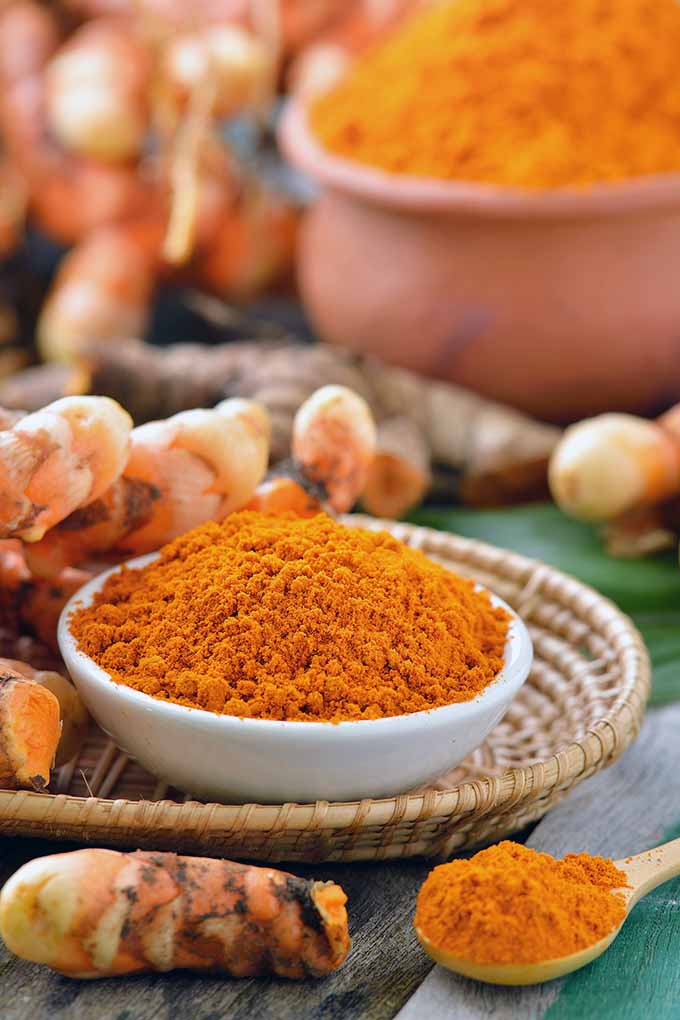
Studies have shown curcumin to have numerous beneficial health properties, and it holds promise for the treatment of several chronic diseases.
A potent antioxidant, it is being used as an anti-inflammatory agent.
And ongoing research is showing significant potential in promoting heart health, as an antidote for arthritis, and for combating cancer, diabetes, digestive issues, arthritis, Alzheimer’s disease, and depression.
So, what can we do to benefit from curcumin?
Natural vs. Supplements
In its raw or powdered form, turmeric contains only about 2-5 percent curcumin.
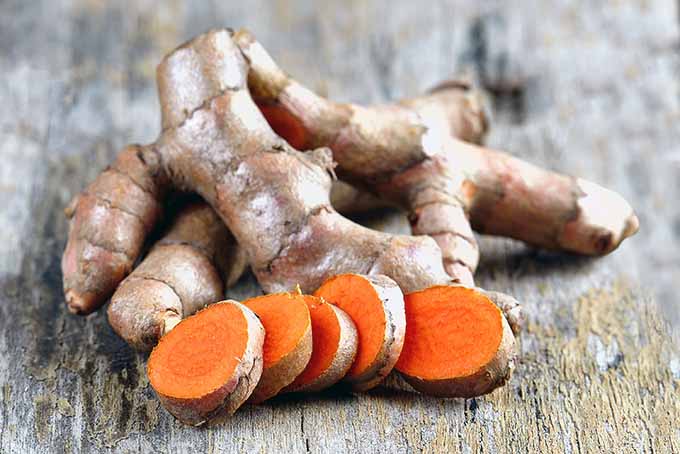
And this means that cooking with it won’t deliver the same levels that are typically used in research dosages, or the amounts delivered in supplemental form.
However, beneficial effects can still be enjoyed by consistently working small amounts into your daily diet.
As it isn’t easily absorbed by the body, the addition of black pepper will help with bioavailability.
This is because black pepper contains the polyphenol piperine, which increases the absorption of curcumin by a whopping 2000 percent.
Curcumin is also lipid-soluble, so consuming a healthy fat at the same time will also help with absorption.
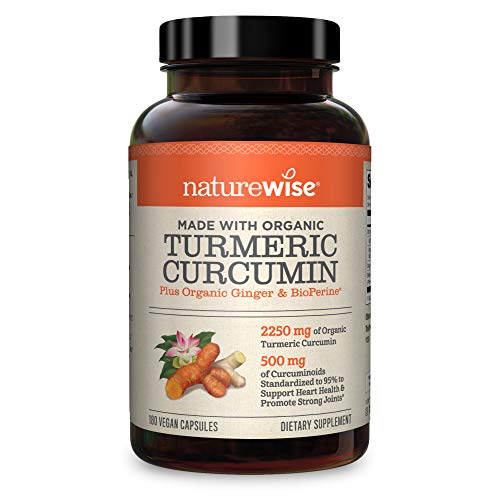
NatureWise Curcumin Turmeric 2250 mg with BioPerine Black Pepper Extract, available on Amazon
If you take it in supplemental form, look for piperine, or bioperine (a standardized extract of piperine) to ensure that it’s effectively absorbed in the digestive tract.
And now, let’s look at few easy ways to add curcumin into our cooking!
Golden Spicy Tea
For a warm and stimulating beverage that is rich with flavor and antioxidants, make my recipe for golden spicy tea.
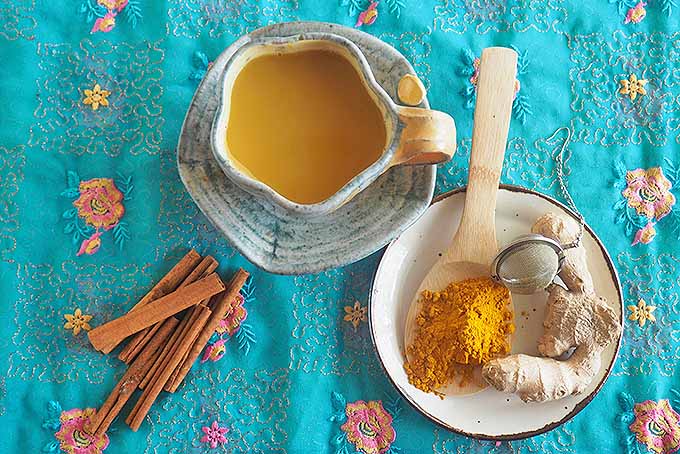
Don’t forget that this spice is also a dye. Leave your heirloom bone china teacups in the cupboards, since this tea will stain! I definitely suggest using older mugs for serving.
Add Some Zip to Tropical Smoothies
The addition of this aromatic spice is a natural in tropical fruit smoothies, like our turmeric-flavored smoothie.
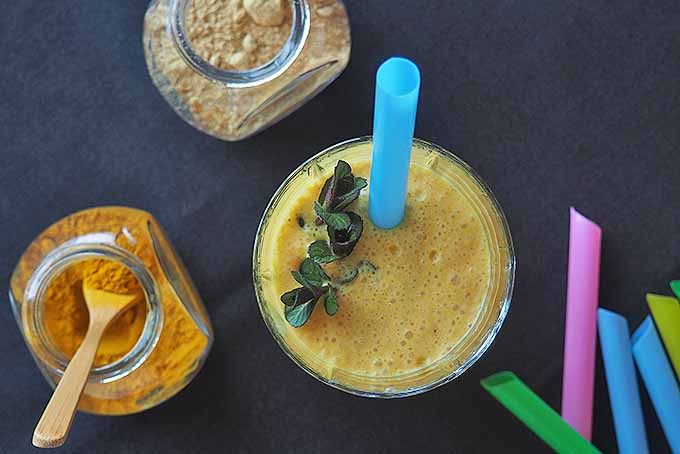
Curry Powder
A staple in many cuisines, curry powder is a bright mix of spices, including turmeric.
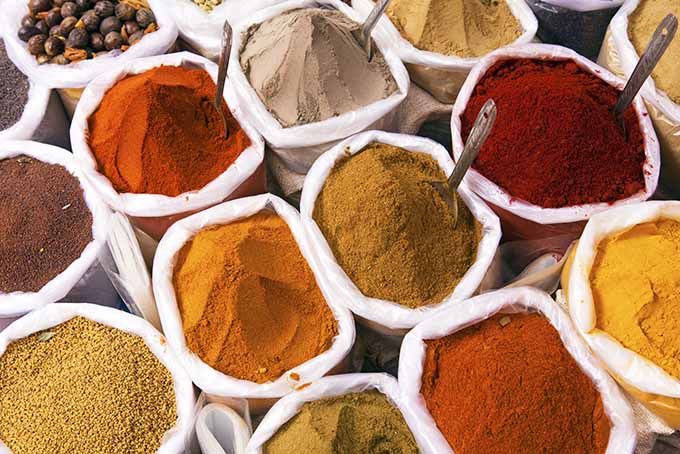
It has a vibrant, earthy flavor that can be used in a variety of savory dishes. And a good way to add more curcumin to your diet is with a tasty homemade curry powder.
Besides curry dishes, try adding curry powder to sautéed or roasted vegetables, or sprinkled on french fries (or our oven-baked crispy green bean fries for a healthier alternative!).
Curry mayo also makes a great veggie dip. Add half a teaspoon in a batch of our homemade mayonnaise.
Add the powder to fried white fish with some coconut, mix it in with lentil soups and stews, or use it to season pan-fried pork chops and roast chicken.
Really, almost any dish that uses a hot oil or releases natural fats makes a good match with curry powder.
A Flavor Intensive
Like curry powder, turmeric itself can be added to many savory or spicy dishes, either vegetarian or meat-based, like soups, stews, casseroles, tagines, and stir-fries.
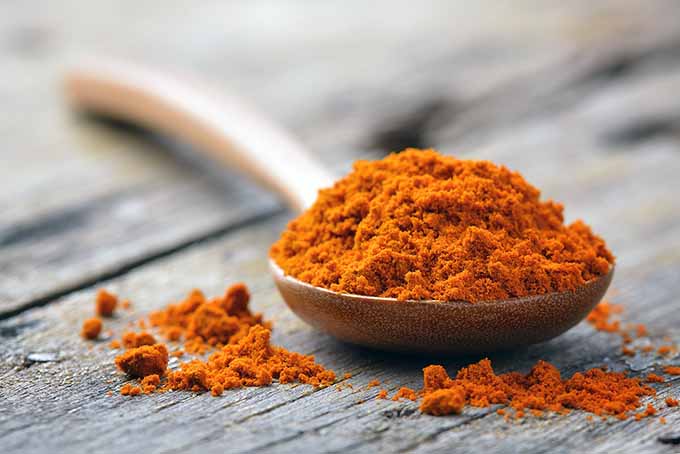
And it’s right at home when a pinch is added to a bit of hot oil when sautéing any mirepoix ingredients, or flavor intensives such as garlic, onions, peppers, and ginger.
Egg Dishes
Turmeric is a vibrant spice to wake up the flavor in many of your favorite savory egg dishes.
Add a little to omelets, frittatas, quiches, and scrambled eggs, or garnish a fried egg with a few colorful pinches.
You can also mix it in with deviled eggs and dressings for egg salad.
Grains and Pulses
Grains and pulses make a wonderful base for the bright color and taste of turmeric.
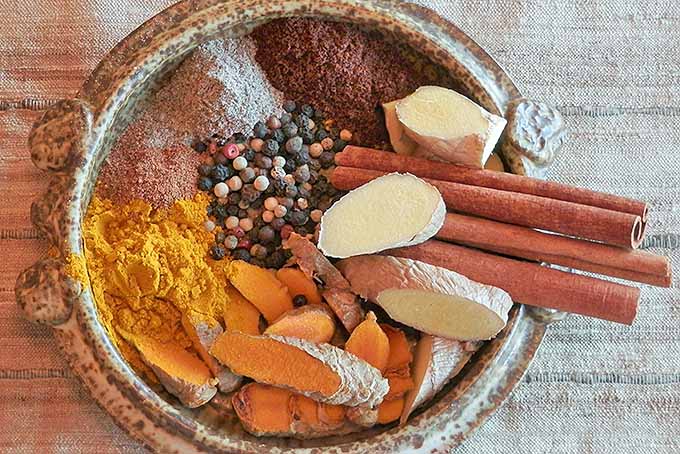
Add a generous pinch to rice or quinoa while it cooks. Or stir some into vegetarian casseroles made with lentils, chickpeas, or beans.
Speaking of chickpeas… turmeric is an awesome seasoning you can add to our oven-roasted chickpeas recipe. Give it a try!
Bright and Flavorful Pickles
Along with mustard, coriander, celery, and dill seeds, turmeric is often included as an ingredient in pickling spices.
It adds sunny color and flavor to classic favorites such as dill pickles, chow chows, sweet relishes, and chutneys.
Add a teaspoon of turmeric along with the other spices in our recipe for zucchini pickles for a tasty twist on classic pickling ingredients!
If you would like to know more about utilizing spices like turmeric in pickling, get to know the process a little better by listening to the latest episode of the Foodal Podcast: managing editor Allison Sidhu discusses the world of spicy, fermented condiments with Kirsten and Christopher Shockey, fermentation experts and authors of the new cookbook a new cookbook called Fiery Ferments.
The Spice of Life
There are plenty of ways to add more curcumin to your diet, so make some room on your spice rack!
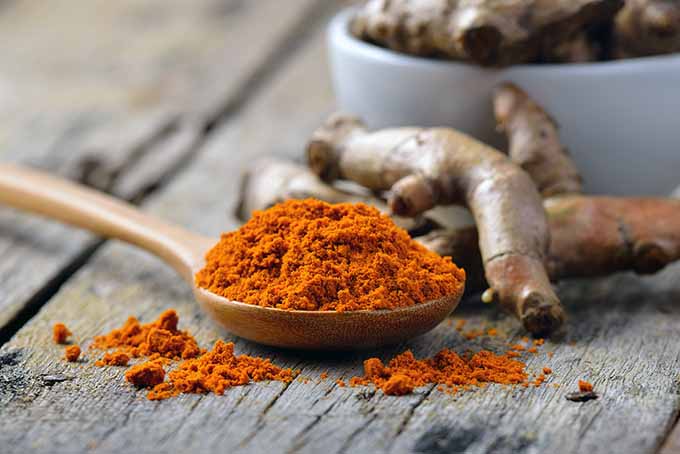
You can enjoy its many benefits either naturally in the foods and beverages that you prepare at home, or in supplemental form.
You can even grow your own if you have the climate for it or raise it as an annual.
When cooking with turmeric, remember to add a bit of black pepper and/or some healthy fat to maximize your potential benefits. And check that your supplements also contain some piperine.
Any other cooking ideas for it that you’d like to contribute? Let us know in the comments below!
Love herbs and spices as much as we do? Read about all of your favorite herbs and spices now! Or check our our Ultimate Guide to Kitchen Herbs and Spices.
Don’t forget to Pin It!
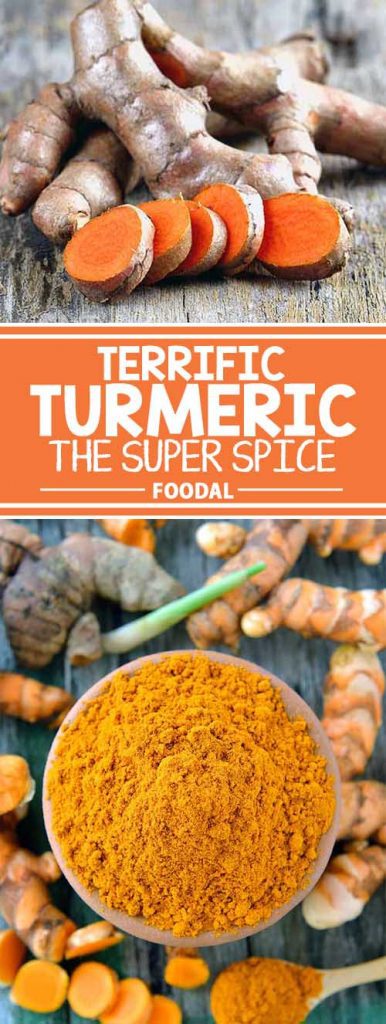
Spice photo by Lorna Kring, © Ask the Experts, LLC. ALL RIGHTS RESERVED. See our TOS for more details. Uncredited photos: Shutterstock.
The staff at Foodal are not medical professionals and this article should not be construed as medical advice. Foodal and Ask the Experts, LLC assume no liability for the use or misuse of the material presented above. Always consult with a medical professional before changing your diet, or using supplements or manufactured or natural medications.
About Lorna Kring
Recently retired as a costume specialist in the TV and film industry, Lorna now enjoys blogging on contemporary lifestyle themes. A bit daft about the garden, she’s particularly obsessed with organic tomatoes and herbs, and delights in breaking bread with family and friends.

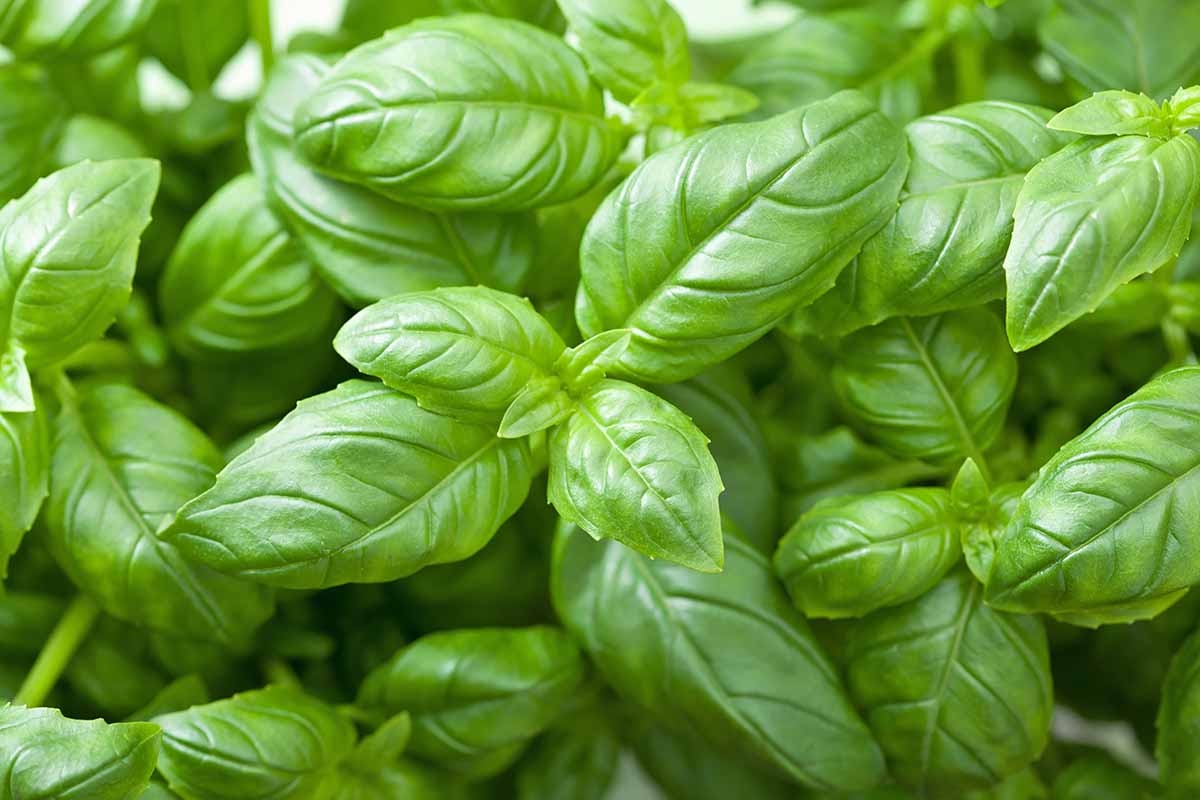

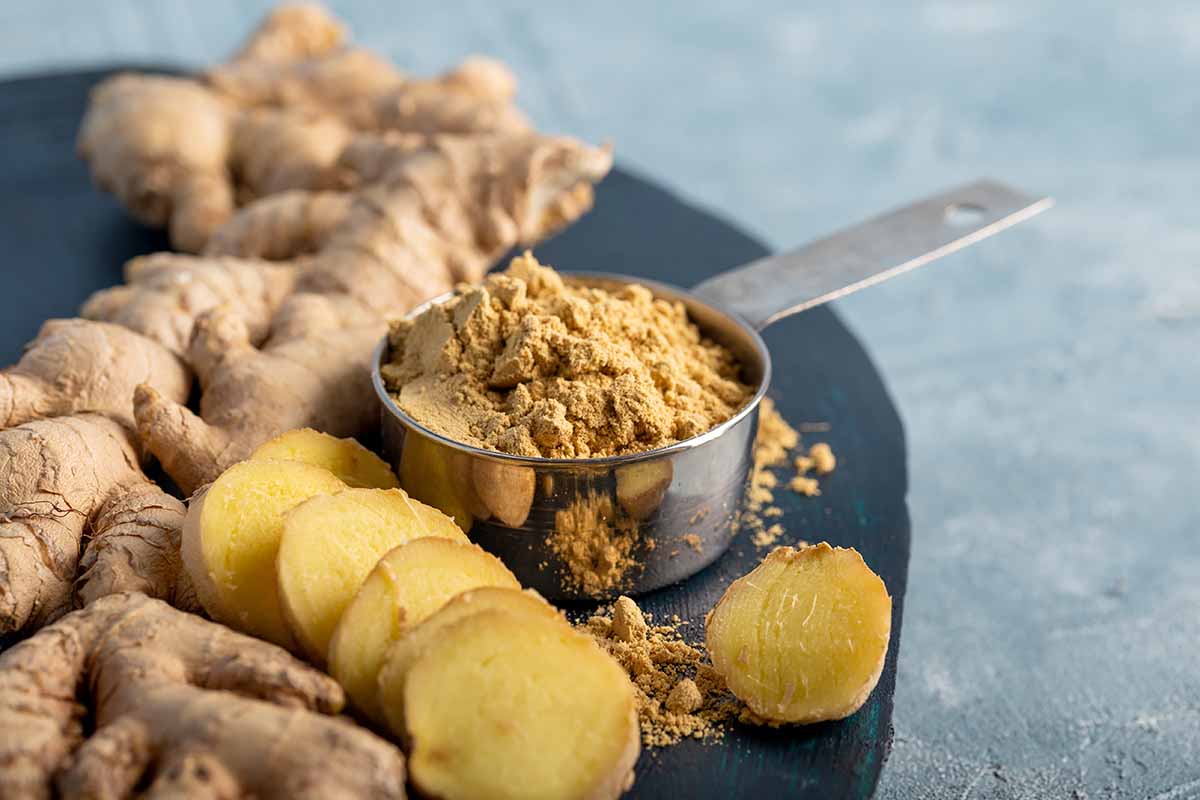
Such an informative article! Love the turmeric tea recipe. One of my favourite ways to take turmeric is by making golden milk